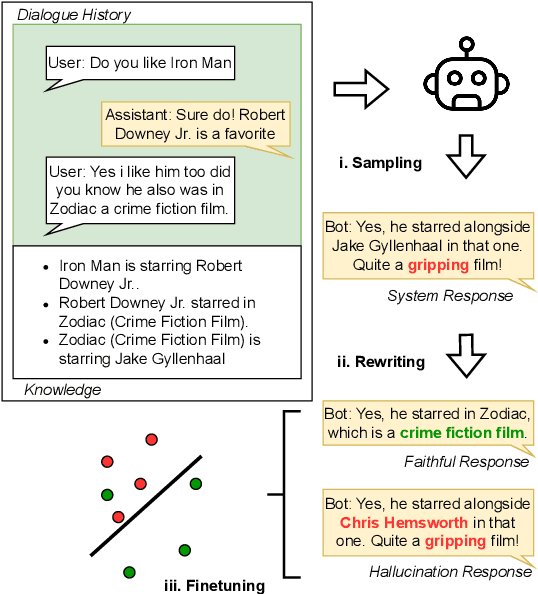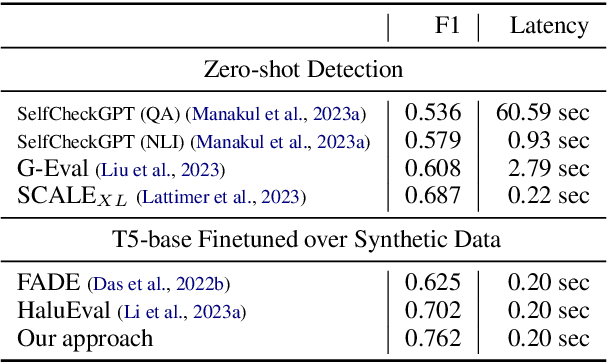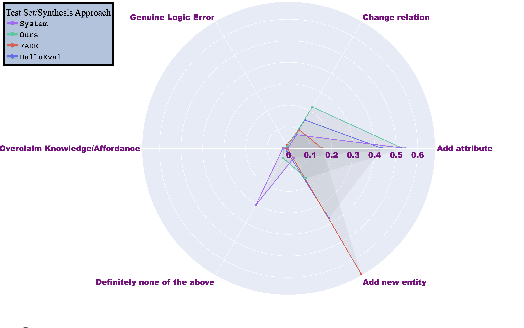Enhancing Hallucination Detection through Perturbation-Based Synthetic Data Generation in System Responses
Paper and Code
Jul 07, 2024



Detecting hallucinations in large language model (LLM) outputs is pivotal, yet traditional fine-tuning for this classification task is impeded by the expensive and quickly outdated annotation process, especially across numerous vertical domains and in the face of rapid LLM advancements. In this study, we introduce an approach that automatically generates both faithful and hallucinated outputs by rewriting system responses. Experimental findings demonstrate that a T5-base model, fine-tuned on our generated dataset, surpasses state-of-the-art zero-shot detectors and existing synthetic generation methods in both accuracy and latency, indicating efficacy of our approach.
* ACL 2024 findings
 Add to Chrome
Add to Chrome Add to Firefox
Add to Firefox Add to Edge
Add to Edge